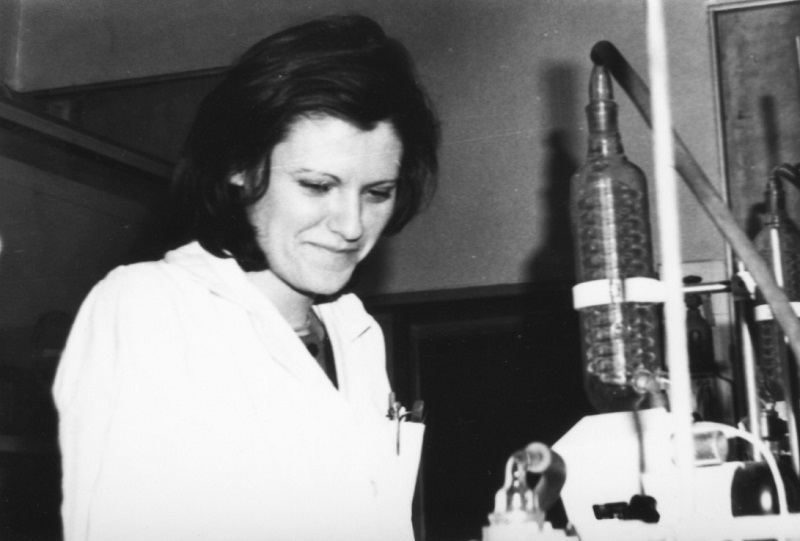„The thrill of watching an intricate detective story unfold is akin to the excitement of research.”
Many scientists have worked on mRNA, which are,in short: 'messenger molecules that carry genetic information from DNA in the nucleus to ribosomes, where they control protein synthesis. Thus, genetic information is transformed into a biological function".
Between 1959 and 1967, scientists stated hypotheses and experimentally proved that between DNA as the genetic material and proteins as end products, an information-mediating molecule plays a role in the process of protein synthesis. This was called messenger RNA. The immunogenicity of the foreign mRNA was demonstrated, its role in protein synthesis clarified and the genetic code deciphered. In 1984, scientists were only able to microinject synthesised mRNA into frog eggs and produce proteins from it in vitro.
The Biological Research Centre in the 80's
 |
| Please click on the picture to enlarge! |
Katalin Karikó first heard about the potential of mRNA for medical applications at the University of Szeged. As a recent graduate in biology, she joined the Laboratory of Nucleotide Chemistry of the Institute of Biophysics at the Szeged Biological Research Centre (BRC). She obtained her PhD in biochemistry from the University of Szeged in 1983. She started working at BRC as a scholarship holder of the Hungarian Academy of Sciences until 1985 when the research group she worked lost its funding. In the United States she focused on discovering the secrets of the fragile mRNA molecule. Katalin Karikó persisted in her scientific convictions even when she did not receive support for her research work - in the shadow of the then “fashionable” DNA research. For example, in 1990, her application was rejected on the grounds that "mRNA is not suitable for therapy, as it degrades immediately". Yet she continued her research aimed at the therapeutic use of mRNA.
In 1999, at the University of Pennsylvania, she successfully delivered synthetic mRNA into mammalian cells with lipofectin, where a functional protein was formed. A year later, Katalin Karikó and Drew Weissmann found that the synthetic mRNA introduced into the immune cell was immunogenic. In 2005, they discovered that the immunogenicity of synthetic mRNA was due to the lack of modified nucleosides. However, immunogenicity can be abolished by appropriate uridine modifications. Their groundbreaking publication went unpublished. They founded their company RNARx. In 2008, they demonstrated that synthetic mRNA containing pseudouridine is translated into protein to a greater extent than normal mRNA.
"For me, the turning point was the introduction of a lipid substance that could be used to introduce mRNA into cells, thus its could be tested in animal experiments. Since then, I was aware that the therapeutic application of mRNA has a great future, ”said the Jedlik Ányos Prize-winning researcher in a short movie about her work. "I find a lot of mysteries about RNA," said Katalin Karikó, and according to her "The thrill of watching an intricate detective story unfold is akin to the excitement of research..."



 Szegedi Tudományegyetem
Szegedi Tudományegyetem




